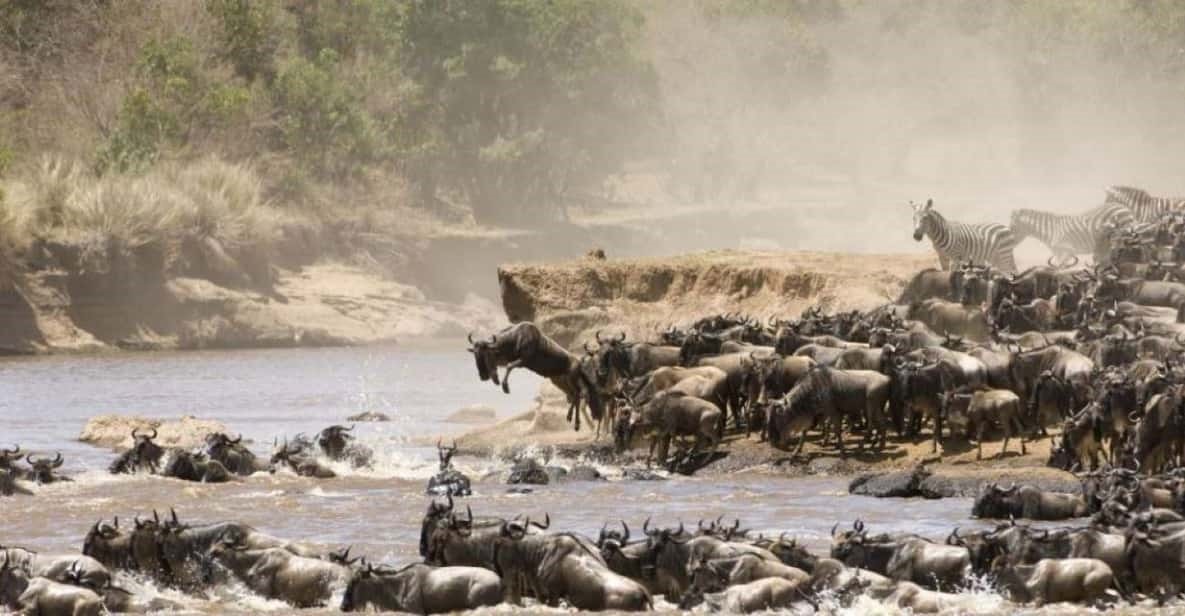
Discover Narok County: Gateway to the Great Wilde
Nestled in the heart of Kenya's southwest, Narok County is a breathtaking tapestry of culture, wildlife, and natural wonders — a true jewel for any traveler seeking an authentic African experience. Known as the gateway to the world-famous Maasai Mara National Reserve, Narok offers unparalleled opportunities to witness the Great Migration, where millions of wildebeest, zebras, and gazelles thunder across the plains in one of the most dramatic wildlife spectacles on Earth.
Beyond the Mara, Narok is a land of sweeping savannahs, lush highlands, and picturesque escarpments. The county is rich in Maasai heritage, and visitors are warmly welcomed to experience traditional homesteads, vibrant beadwork, and ceremonial dances that reveal the deep-rooted customs of one of Kenya’s most iconic communities.
Nature lovers can explore the stunning Mau Forest Complex, the scenic Loita Hills, and sacred sites such as Enkare Narok River, while adventure seekers can enjoy guided safaris, balloon rides over the plains, and eco-tourism experiences that support conservation and local communities.
Whether you’re chasing the Big Five, immersing yourself in indigenous culture, or simply savoring the golden African sunset, Narok County promises a journey that stirs the soul and leaves lasting memories.
| Country | Kenya |
| Languages Spoken | English |
| Currency Used | KShs |
| Area | 17,921 km² |
| Time Zone | GMT +3 hours |
| Visa Requirements |
As of January 1, 2024, Kenya has eliminated traditional visa requirements for all travelers, including those visiting Narok County. Instead, visitors must obtain an Electronic Travel Authorization (eTA) before arrival. eTA Requirements for Visiting Narok County To obtain an eTA for travel to Narok County, follow these steps:
|
| Activities |
1. Wildlife Safaris in Maasai Mara National Reserve 2. Hot Air Balloon Safaris 3. Cultural Visits to Maasai Villages (Manyattas) 4. Hiking and Trekking in Loita Hills 5. Visit Mau Forest and Enkare Narok River 6. Photography Tours 7. Shopping for Local Handicrafts 8. Agri-Tourism & Community Visits 9. Bird Watching |
| Best Time to Visit |
July–October for the Great Migration. |
| Health and Safety |
Health Tips1. Vaccinations & Health Precautions· Recommended vaccinations: · Yellow Fever (required if coming from a country with risk) · Hepatitis A & B · Typhoid · Tetanus · COVID-19 (updated vaccination recommended) · Malaria: Narok is a malaria risk area, especially in and around Maasai Mara. Bring mosquito repellent and take anti-malarial medication as advised by a travel doctor. 2. Food & Water Safety· Drink only bottled or treated water. · Eat freshly cooked food and avoid uncooked salads or unpeeled fruits in rural areas. · Avoid street food unless from a trusted source. 3. Medical Services· Narok Town has several hospitals and health centers including: · Narok County Referral Hospital · Cottage Hospital · Private clinics and pharmacies · For emergencies in remote areas (like Maasai Mara), lodges often have first-aid kits and evacuation plans via air ambulance services (e.g., AMREF Flying Doctors). Safety Tips1. Wildlife Safety· Always follow the guide’s instructions during game drives or nature walks. · Stay inside vehicles in game parks. · Never approach or feed wild animals. · Avoid walking at night in or near reserves. 2. General Travel SafetyNarok is generally safe, but: · Be cautious with valuables. · Use licensed tour operators. · Keep emergency contacts and your embassy info handy. 3. Road Safety· Roads to rural parts, especially around the Maasai Mara, can be rough. · If self-driving, use a 4x4 vehicle. · Avoid traveling at night due to poor lighting and potential hazards. 4. Weather & Environment· Protect yourself from sun exposure (use sunscreen, hat, and sunglasses). · Be prepared for sudden weather changes, especially during the rainy seasons (March–May, Oct–Nov), which can affect road conditions. Emergency Numbers (Kenya-wide)· Police: 999 / 112 · Ambulance Services (AMREF Flying Doctors): +254 20 699 2000 · Narok County Referral Hospital: (can be looked up for latest contact)
|